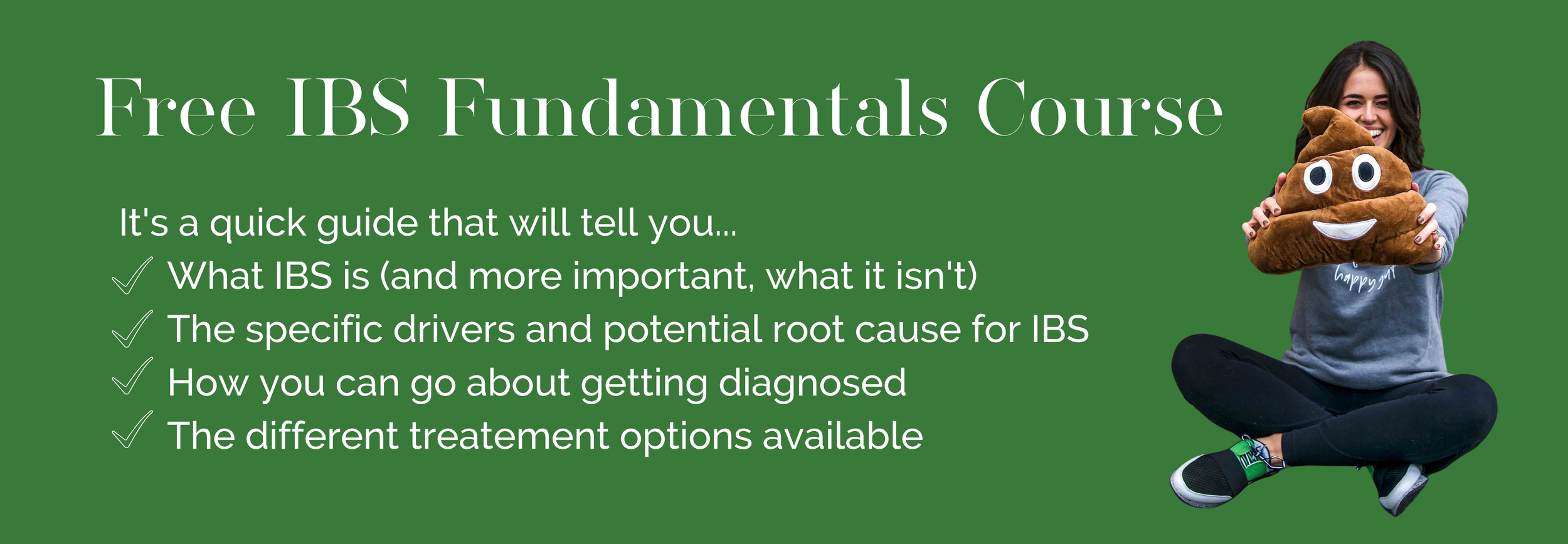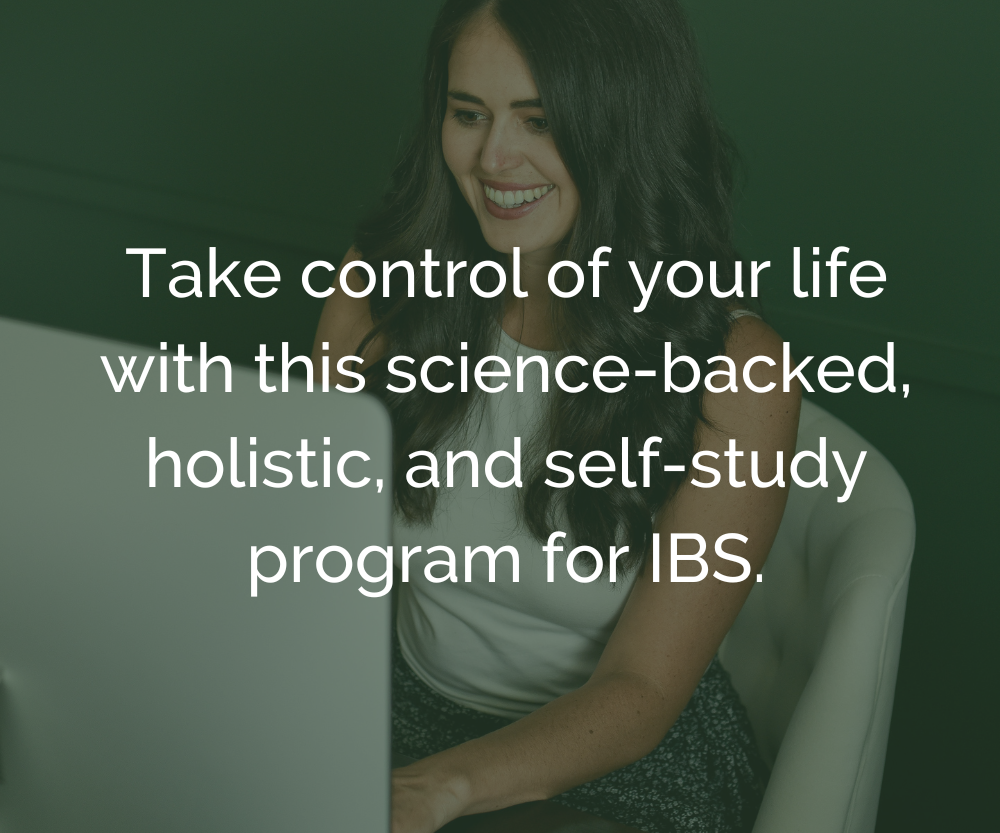What Is Irritable Bowel Syndrome?
Irritable bowel syndrome (IBS) is a complicated and somewhat mysterious functional gut-brain disorder, which means it is characterized by changes in the function of the digestive system and a disconnect in the communication between the gut and the brain. It is a heterogeneous disorder in that no single abnormality accounts for symptoms in all patients. The most common symptoms include bloating, abdominal pain, gas, and chronic diarrhea and/or constipation. It is classified as IBS-D if diarrhea is the more prevalent symptom, IBS-C if constipation is more prevalent, and IBS-M if there is an equal mixture of the two.
IBS is one of the most commonly diagnosed gastrointestinal (GI) illnesses, and is prevalent in about 10% of the population in Western countries. IBS is symptoms-based, so definitive testing for a diagnosis can be difficult. Currently, diagnosis is determined according to Rome Criteria with the presence of the common symptoms, in absence of other diseases with common symptoms, including inflammatory bowel disease (IBD), which includes diverticulitis, ulcerative colitis and Crohn’s disease; systemic hormonal disturbances like thyroid dysfunction; enteric infections; colorectal cancer; and diseases associated with malabsorption. Sounds confusing, right? Routine testing for these conditions is not routine, so unless symptoms are severe, it can take a long time for a diagnosis of IBS to be determined.
Due to the increase of common IBS symptoms, a new term of IBS-like disorders have been developed. These include celiac disease, non-celiac gluten sensitivity, lactose intolerance, small intestine bacterial overgrowth (SIBO), a-amylase/trypsin inhibitor (ATIs) sensitivity, and nickel allergic contact mucositis. These can overlap with IBS, and there is small research that links many of these to increased prevalence of IBS. Read more about the connection of IBS and SIBO here!
What’s your poop personality? Find out here!
Cause of IBS
There is no single cause of IBS. The gut is complex and there are many factors that are connected with the development of IBS. The most common factors that are linked to IBS are altered gut immune activation, intestinal permeability (“leaky gut”), and the intestinal and colonic microbiome. Causes are thought to include chronic psychological stress, changes in microbiota, and acute episodes of infectious gastroenteritis. Chronic psychological stress, including depression and anxiety can induce changes in gut bacteria and enhanced bacterial wall adherence, which allows pathogens and nutrients to pass through the gut wall, leading to IBS symptoms. Changes in the microbiota (bacteria) in the gut can lead to gut inflammation (bloating) and altered digestion (constipation and diarrhea). Infection in the gut can cause structural damage, which can also affect digestion and bacterial makeup.
Infection in the gut, including traveler’s diarrhea, food borne illness, and others, is shown to increase the risk for IBS 4x! The severity of the infection correlates with an increased risk.
IBS is shown to be more common in females versus males and there is thought to be a genetic component, which means family members with IBS can increase an individual’s risk.
While these factors seem promising in helping us understand the cause of IBS, there is still a lot of research to be done here. Long story short, it’s hard to tell exactly what may cause IBS for each individual, but stress, gut microbiota (influenced by genetics, environment, and diet), and infections may play a role.
Can IBS be treated or cured?
Currently there is no cure for IBS, but symptoms can usually be managed by lifestyle modifications. There are also therapeutic treatments that may be helpful in managing some symptoms.
Lifestyle modifications for IBS management include consistent exercise, adequate sleep, and stress management.
Food allergies and intolerances are not shown to play a major role in the development of IBS, but foods that are more difficult to digest, including those high in FODMAPs (fermentable oligosaccharides, disaccharides, monosaccharides and polyols) could trigger symptoms. As the gut epithelial layer becomes more permeable, these small carbohydrates are thought to pass through the lining to cause bloating and pain. These carbohydrates are also highly fermentable by gut bacteria, which can lead to excessive gas. Therefore, a low FODMAP diet is a great treatment tool to find which foods trigger and individual’s symptoms. This diet can be very restrictive, however, and can lead to poor nutrition and inadequate fiber intake, so it’s vital that you seek the guidance of a registered dietitian if you are wanting to try it out. Look for a post coming soon describing the diet in more detail. Other diet modifications that can be beneficial in IBS treatment include increasing water intake, increasing fiber intake, and avoiding highly processed foods and saturated fats that may not be easily digested. These are typically done before the low FODMAP as first-line changes.
While diet modifications can help with symptoms, stress management may be more likely to help with the underlying cause or major trigger of the symptoms. Many IBS patients benefit from meeting with a psychologist, therapist, or psychiatrist for guidance in this area. Exercise, breath techniques, meditation, and support from community may also help. Gut-directed hypnotherapy is a treatment option that specifically targets the gut-brain connection and is shown to be very effective in symptom management.
Therapeutic treatments are also being used to treat some IBS symptoms. IBS-D may be treated with antispasmodic agents, antidepressants, serotonin 5-HT3 antagonists, and the gut specific antibiotic rifaximin. IBS-C may be treated with dietary fiber, laxatives, and the prosectratory agents lubiprostone and linaclotide. While these may help with severe symptoms, these treatments do not guarantee definitive and lasting solutions.
Where to Begin
If you have IBS or experience IBS-like symptoms, I’m sure all of the information above is a little stressful. It’s complicated and hard to understand. I’m with you and I get it. Here are a couple of things you can start doing now, if you aren’t already:
See a gastroenterologist for an accurate diagnosis, to talk about symptoms, and find out what type of IBS you are (if you do have IBS).
Meet with a registered dietitian (me!) to develop a nutrition plan that can help you manage/prevent symptoms, while continuing to prioritize adequate nutrition.
Find an exercise routine that you enjoy! If you’re not confident in the gym, join a group fitness studio, get a personal trainer, or find an online workout program you can do at home. I have recommendations if you need them!
Be introspective to find the stressors in your life. If you need guidance, meet with a reputable therapist. Do what you need to do to develop a stress management plan in your life. This could even look like letting go of things that are causing unnecessary stress.
If you have more tips to share that have helped you on your IBS journey, comment below! If you have questions you’d like me to address, put them in the little box on the right. If you would like to be a client, apply here for a quick discovery call!
Sources:
https://www.ncbi.nlm.nih.gov/pubmed/25339801
https://www.ncbi.nlm.nih.gov/pmc/articles/PMC4202343/
https://www.ncbi.nlm.nih.gov/pmc/articles/PMC5495893/
https://www.ncbi.nlm.nih.gov/pmc/articles/PMC5210026/
https://www.ncbi.nlm.nih.gov/pubmed/24716562
https://www.ncbi.nlm.nih.gov/pmc/articles/PMC5598808/
Are you frustrated with your IBS symptoms? Do you desire to be confident in your food choices? Do you want to have a healthier relationship with your body and diet? Are you ready to take control of your IBS?



